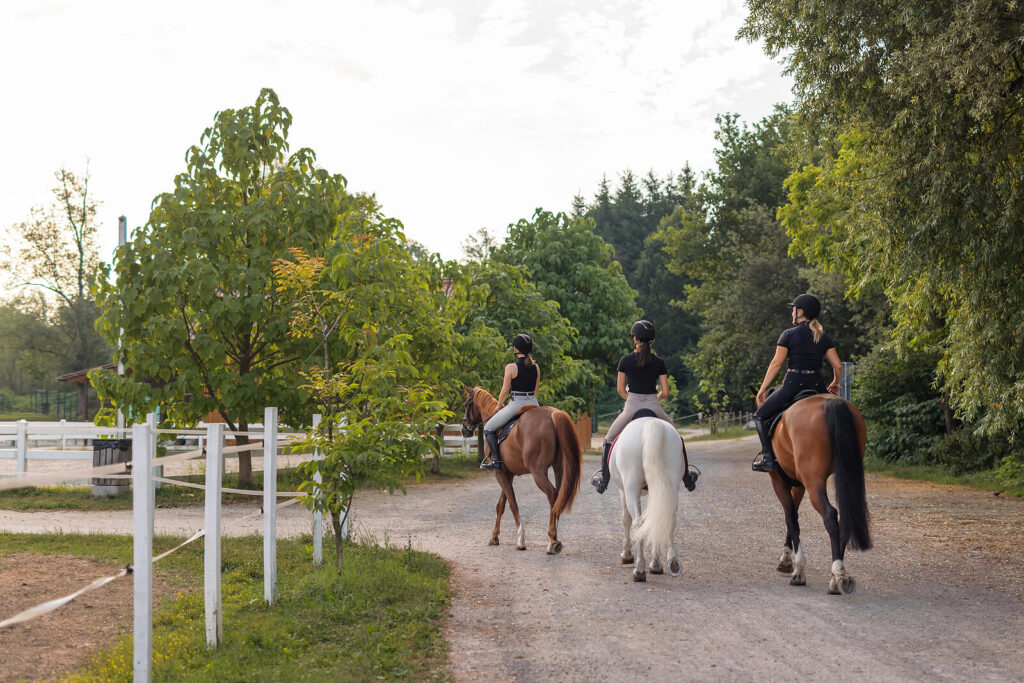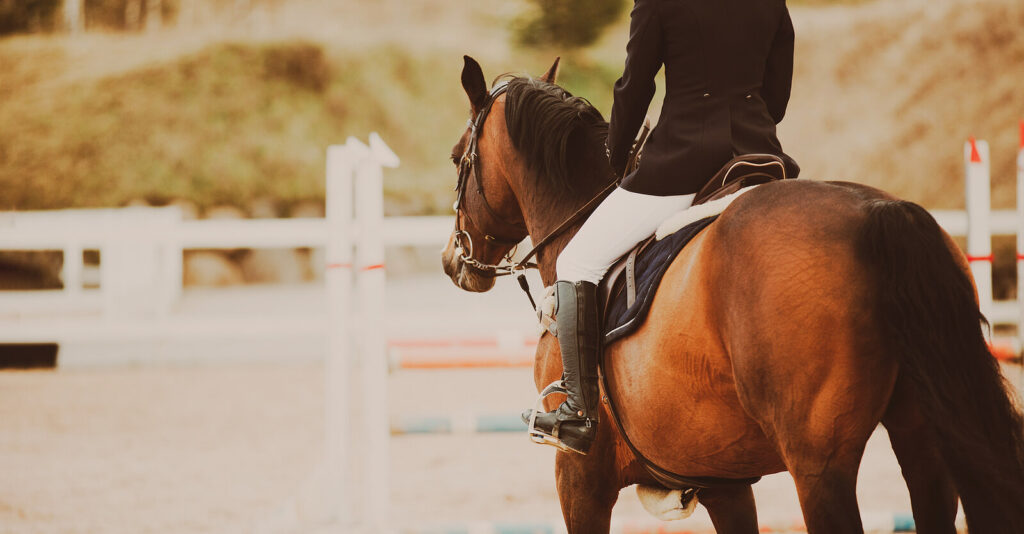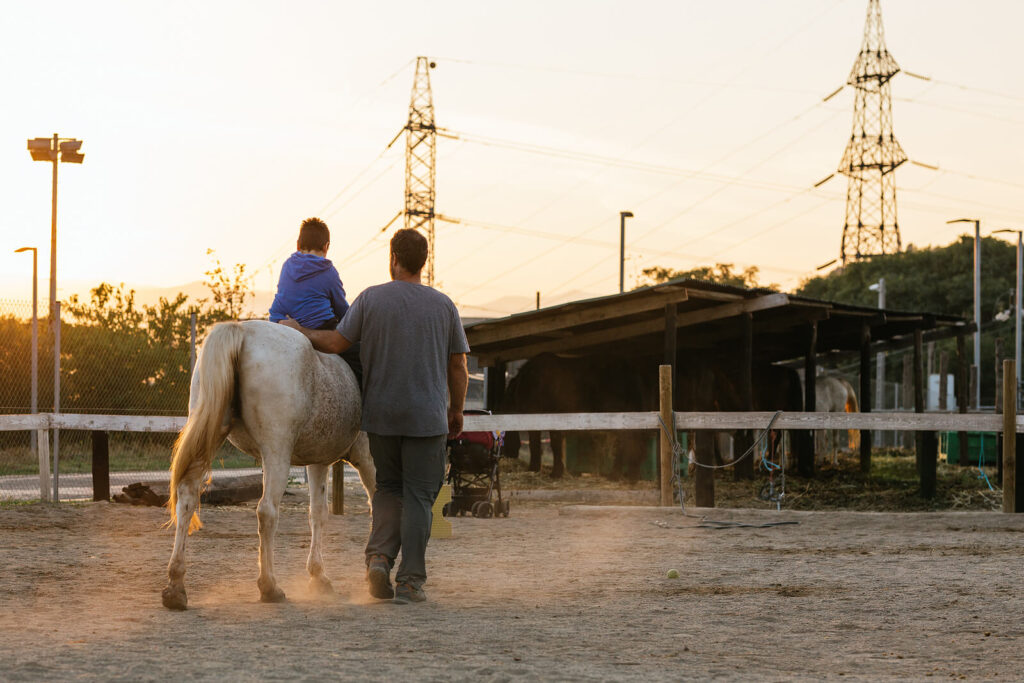Growing up around many animals was fun, and caring for them was a lot of work.
 I also got the opportunity to watch them interact with the same species, dogs with dogs, and interact with different species; dogs with cats and or horses. I noticed the relationships they formed, some animals appeared to like each other, and others appeared more tolerant of others. This all seemed normal to me as I was exposed to it regularly. I had decided to become a therapist pretty early in my life, and I recognized how much I got from interacting with them. I wondered if other people had a similar experience. It was not until much later in my life that I found the answer to my questions.
I also got the opportunity to watch them interact with the same species, dogs with dogs, and interact with different species; dogs with cats and or horses. I noticed the relationships they formed, some animals appeared to like each other, and others appeared more tolerant of others. This all seemed normal to me as I was exposed to it regularly. I had decided to become a therapist pretty early in my life, and I recognized how much I got from interacting with them. I wondered if other people had a similar experience. It was not until much later in my life that I found the answer to my questions.
Spending time with horses and interacting with them helps people feel better, and it can benefit many people and many different problems. Equine-assisted therapy refers to activities with horses conducted while supervised by a mental health professional and an equine specialist. It is slightly different from equine-assisted activities. Both are generally used in conjunction with “regular talk therapy.” They both are helpful for a wide variety of problems, such as:
- Anxiety
- Eating disorders
- Addictions
- Depression
- Trauma
Equine-assisted therapy is thought to help build confidence, empathy, and self-awareness.
Understanding Equine Assisted Learning/Activities
Equine-assisted learning is more directed work with the horse, therapist, and equine specialist. It is a skill-building method where people work with horses to achieve particular personal or professional goals. As a client, you will work with a team (therapist, horse, and equine specialist) to create a lesson plan based on your goals. Clients are guided through lessons in observing horses’ behavior and caring for the horses and then link how the horses behave to lessons on how humans behave.
is more directed work with the horse, therapist, and equine specialist. It is a skill-building method where people work with horses to achieve particular personal or professional goals. As a client, you will work with a team (therapist, horse, and equine specialist) to create a lesson plan based on your goals. Clients are guided through lessons in observing horses’ behavior and caring for the horses and then link how the horses behave to lessons on how humans behave.
Equine Assisted Learning/Activities can also be specialized to help with specific populations such as:
- Veterans
- First Responders
- Corporate Professional Development programs
Equine-assisted learning/activities are frequently used to help with communication skills, problem-solving skills, emotional regulation, and building trust and connection.
When It’s Used
Equine-assisted therapy is helpful for any age group. Children as young as six and adults can benefit from treatment or learning. As stated above, it is beneficial in many types of problems and a wide variety of populations. Clients and therapists usually discuss goals and objectives, and a decision is made jointly about whether therapy, learning/activities, or a combination of both would be most beneficial.
What to Expect From Equine Assisted Therapy
Although there are no typical sessions when working with horses, as they are living animals and things change, some sessions are similar. Generally, there will be time for the client to meet the horses and “spend time with horses” as an introduction. They can also observe the horses from any distance they are comfortable with. Other examples include grooming the animal and leading/moving with the horse around an enclosure. They may also take on more complex activities, such as creating an introductory obstacle course for the horse and guiding them through it. Afterward, the mental health professional and the client will discuss what occurred, what was learned, and what behaviors or emotions they might target in their next session with the horse.
 It should be noted that riding horses is not generally done in the mental health work with horses. Riding is much more often a component of other types of therapeutic work. Riding can benefit someone’s mental health as it is a form of exercise that gets you outside and away from things you may typically do. Taking riding lessons can lead to opportunities to socialize with other riders. Participating in a riding program may help decrease feelings of loneliness or isolation.
It should be noted that riding horses is not generally done in the mental health work with horses. Riding is much more often a component of other types of therapeutic work. Riding can benefit someone’s mental health as it is a form of exercise that gets you outside and away from things you may typically do. Taking riding lessons can lead to opportunities to socialize with other riders. Participating in a riding program may help decrease feelings of loneliness or isolation.
Why Horses?
Horses have been helping humans for a very long time. Since they have been domesticated for a long time, they are very attuned to human emotions and nonverbal signals. So engaging with horses, clients often attempt to recognize how the horse’s behavior might be due to their feelings. In doing this, the client may then be able to begin to recognize their emotions better and then make changes, all in a nonjudgmental way for the client. Horses are also much more significant than humans and stronger than most humans; this can be intimating for people. Clients can interact with the horses in a safe space and be supervised. This can help clients learn to face fears or practice becoming more vulnerable.
Clients often find that simply interacting with horses and successfully asking them to do something and having the horse willingly go with them or complete the task does boost self-esteem and confidence and lower anxiety. Also, clients can build a relationship with the horses over time, which can help with empathy, trust building, and relationships. In working with horses learning to manage impulse control may happen as the horse may not respond as intended with quick and impulsive behaviors. Social skills are also frequently addressed in therapy or learning/activities as horses are social creatures, and clients can learn a great deal from how they interact in the world when they interact with the horses.
Working in groups or teams with horses also helps improve communication skills, problem-solving skills, relationships, and trust in a group, as they need to work together with the horse to achieve the desired goals.
What to Look for in an Equine Therapist in Virginia
If equine-assisted therapy would be helpful to you, discussing this with the mental health clinician is generally the first step. However, this therapy may not be beneficial if someone fears horses and has some physical limitations. These would need to be discussed before a meeting to ensure safety for everyone. Also, check for membership or certification in equine-assisted therapy. Three organizations offer certification and training for equine-assisted therapy and learning/activities. Equine Assisted Growth and Learning Association (EAGALA), Professional Association of Therapeutic Horsemanship Intl (PATH Intl.|), and Arena for Change (ARCH) are organizations that offer training and certification for both the mental health and equine specialist that provide therapy. Discussing the goals and problems that will be addressed in therapy or learning/activities and ensuring the therapist is experienced in dealing with specific issues or populations will also need to be discussed.
Begin Equine Assisted Therapy in Richmond, VA
Spending time with horses in any way can be very beneficial. As an equine therapist, I would be happy to offer support to help you realize the benefits of equine-assisted activities. You can start your therapy journey from my Virginia-based therapy practice by following these simple steps:
- Contact us by calling to schedule a free consultation
- Check out our FAQs and read more about us
- Start experiencing the benefits of working with horses!
Other Therapy Services Offered by Gray Horse Counseling
Equine Therapy is just one of the many mental health services offered at our Powhatan, VA counseling practice. We are available for in-person help in Powhatan and online in Virginia. Our other services at Gray Horse Counseling include individual therapy, anxiety therapy, group therapy, equine sports, clinical supervision, trauma therapy, and depression therapy, and more. Check out our FAQs, read about us, and contact us today to get the help you deserve!
If you want to make some changes in your life or your riding life, I would love to connect with you about how we can accomplish that. Please get in touch with me for more information or to schedule a consultation.

